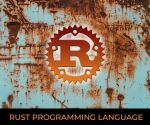“The top programming languages for Fintech are those that provide robust and secure frameworks for handling sensitive financial data, as well as efficient and scalable performance for handling high volumes of transactions.”
The financial world relies on technology, and financial companies often employ a wide range of engineers and programmers to help them find and maintain their innovative edge. Fintech (financial technology) is a rapidly growing industry that relies heavily on programming languages for building robust, secure, and efficient financial systems.
Financial Programming Languages are programming languages designed specifically for Financial applications, such as quantitative finance, risk management, and financial modeling.
Here are the top specialized financial programming languages.
- Python is one of the most popular programming languages and a common choice for professionals who work in Fintech. This language is flexible and relatively easy to learn, so it can be a good choice for students trying to decide what language they want to start with. Because Python has an extensive library of tools and customizable development packages, it’s also an attractive choice for companies that want to develop financial applications.
- JAVA is a popular language for building secure and scalable Fintech systems, particularly for backend development. It is also widely used for building mobile applications for Fintech.
- JavaScript is a client-side programming language that is commonly used in Fintech for developing web applications and front-end development. It is particularly well-suited for creating interactive and responsive user interfaces.
- Rust seems to be the most valuable one to learn. Although it’s not yet widely used in finance, there are some areas where it’s gaining traction, especially in the crypto industry. Even systematic hedge funds are willing to hire candidates without prior Rust experience due to its high demand.
- OCAML This programming language is a close second to Rust in Stack Overflow’s pay statistics, and may even earn significantly more in finance, given its adoption by a major hedge fund.
- Ada is a popular language in Europe, particularly in France where it was initially developed by a Frenchman. French bank BNP Paribas and Dutch prop traders Deep Blue Capital are among the major hirers of Ada developers.
- Slang is a programming language that may not be as valuable as the others on this list and is mostly associated with Goldman Sachs. It’s not recommended unless you’re set on a career with the company.
- MATLAB is a programming language that specializes in mathematical operations. Because many finance professionals use a variety of different formulas and algorithms to plan their investments, MATLAB is a common choice for companies that focus on long-term investments. This language provides interactive plotting tools that investors and analysts can use to coordinate their economic strategies.
- Ruby, which was developed in the 1990s, is a more popular language among Fintech, with several high-paying jobs available for Ruby developers.
- Solidity is a programming language specifically designed for developing Smart Contracts on the Ethereum Blockchain. It is particularly well-suited for Fintech applications that require transparency, security, and decentralized trust.
Final Thoughts
The choice of Programming Language for Fintech applications depends on the specific requirements of the project, the development team’s expertise, and the industry’s best practices. By choosing the right programming language, Fintech companies can develop robust, secure, and scalable systems that meet the needs of their customers and the financial industry as a whole.
🅐🅚🅖
Interested in Management, Design or Technology Consulting, contact anil.kg.26@gmail.com
Get updates and news on our social channels!
LATEST POSTS
- A Tale Of Two Frameworks: Spring Boot vs. Django
 “Spring Boot’s convention over configuration approach simplifies development, allowing developers… Read more: A Tale Of Two Frameworks: Spring Boot vs. Django
“Spring Boot’s convention over configuration approach simplifies development, allowing developers… Read more: A Tale Of Two Frameworks: Spring Boot vs. Django - Unleashing The Power Of Django
 “Django, akin to a Swiss Army knife, provides a comprehensive… Read more: Unleashing The Power Of Django
“Django, akin to a Swiss Army knife, provides a comprehensive… Read more: Unleashing The Power Of Django - Potential of Progressive Web Apps (PWAs)
 “PWAs are not just about technology; they are about creating… Read more: Potential of Progressive Web Apps (PWAs)
“PWAs are not just about technology; they are about creating… Read more: Potential of Progressive Web Apps (PWAs) - Unleashing The Power Of Spring Framework
 “Spring Framework simplifies enterprise Java development, but it does so… Read more: Unleashing The Power Of Spring Framework
“Spring Framework simplifies enterprise Java development, but it does so… Read more: Unleashing The Power Of Spring Framework - Key Trends Of OSINT In 2024
 “The future of OSINT lies in our ability to adapt… Read more: Key Trends Of OSINT In 2024
“The future of OSINT lies in our ability to adapt… Read more: Key Trends Of OSINT In 2024 - Can Google’s Carbon Language Replace C++?
 “While Carbon may excel in performance-critical domains, it cannot replace… Read more: Can Google’s Carbon Language Replace C++?
“While Carbon may excel in performance-critical domains, it cannot replace… Read more: Can Google’s Carbon Language Replace C++? - Integration of Design Thinking, Lean, and Agile
 “Innovation thrives when Design Thinking, Lean, and Agile converge, creating… Read more: Integration of Design Thinking, Lean, and Agile
“Innovation thrives when Design Thinking, Lean, and Agile converge, creating… Read more: Integration of Design Thinking, Lean, and Agile - Benefits Of Infrastructure as Code (IaC)
 “Infrastructure as Code is the single most important thing you… Read more: Benefits Of Infrastructure as Code (IaC)
“Infrastructure as Code is the single most important thing you… Read more: Benefits Of Infrastructure as Code (IaC) - Power Of Internet of Everything (IoE)
 “The true power of the Intebrnet of Everything lies not… Read more: Power Of Internet of Everything (IoE)
“The true power of the Intebrnet of Everything lies not… Read more: Power Of Internet of Everything (IoE) - How Is The Enterprise IoT Evolving?
 “IoT is not just about connecting things; it’s about connecting… Read more: How Is The Enterprise IoT Evolving?
“IoT is not just about connecting things; it’s about connecting… Read more: How Is The Enterprise IoT Evolving? - IT Pricing Strategy And Models
 “The art of pricing lies in finding the perfect balance… Read more: IT Pricing Strategy And Models
“The art of pricing lies in finding the perfect balance… Read more: IT Pricing Strategy And Models - What Is SYCL (“sickle”)?
 “SYCL provides a powerful and intuitive programming model that simplifies… Read more: What Is SYCL (“sickle”)?
“SYCL provides a powerful and intuitive programming model that simplifies… Read more: What Is SYCL (“sickle”)? - What Is A Data Lakehouse?
 “With a data lakehouse, organizations can break down data silos,… Read more: What Is A Data Lakehouse?
“With a data lakehouse, organizations can break down data silos,… Read more: What Is A Data Lakehouse? - 5G – The Future Of The Internet
 “5G is the next big step in the evolution of… Read more: 5G – The Future Of The Internet
“5G is the next big step in the evolution of… Read more: 5G – The Future Of The Internet - Ransomware Groups Are Switching To Rust
 “Rust is to Ransomware what a lockpick is to a… Read more: Ransomware Groups Are Switching To Rust
“Rust is to Ransomware what a lockpick is to a… Read more: Ransomware Groups Are Switching To Rust - Streaming Data Pipelines
 “A streaming data pipeline is like a river: it flows… Read more: Streaming Data Pipelines
“A streaming data pipeline is like a river: it flows… Read more: Streaming Data Pipelines - Why Rust Is Best?
 “Rust is a systems programming language that runs blazingly fast,… Read more: Why Rust Is Best?
“Rust is a systems programming language that runs blazingly fast,… Read more: Why Rust Is Best? - Database Sharding Explained
 “Database sharding is like breaking a large puzzle into smaller,… Read more: Database Sharding Explained
“Database sharding is like breaking a large puzzle into smaller,… Read more: Database Sharding Explained - Ambient Computing Will Be The Future Tech
 “Ambient computing creates a seamless technology-rich environment, but challenges in… Read more: Ambient Computing Will Be The Future Tech
“Ambient computing creates a seamless technology-rich environment, but challenges in… Read more: Ambient Computing Will Be The Future Tech - Key Trends Of OSINT In 2023
 “OSINT is not just a technique, it’s a mindset. It’s… Read more: Key Trends Of OSINT In 2023
“OSINT is not just a technique, it’s a mindset. It’s… Read more: Key Trends Of OSINT In 2023

